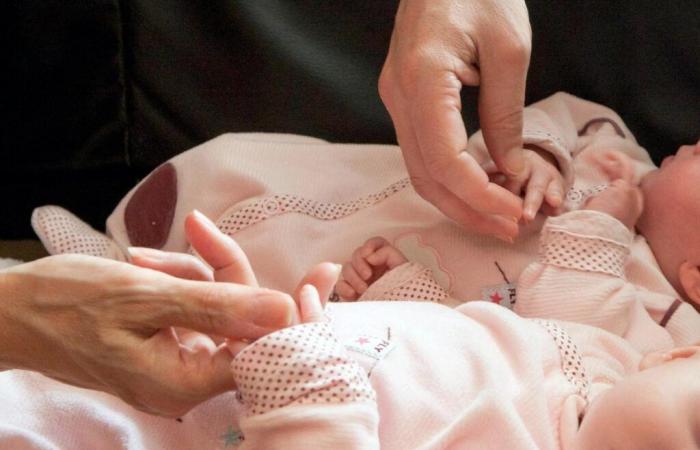Have you ever heard of the cognitive bias known as the “curse of knowledge”? It corresponds to the situation in which you assume – wrongly – that everyone knows as much as you about a given subject.
As a clinical microbiologist, I thought everyone knew that kissing a newborn was a terrible idea. However, recently, Karan Raj, a surgeon from the National Health Service (NHS, the British public health service), published a video on the social network TikTok to warn his subscribers about the danger that kissing can pose. a little baby.
Judging by the thousands of reactions his post provoked, apparently for many people this was new information… The results of a survey carried out at the end of last year by a charity British, The Lullaby Trustalso go in this direction: they revealed that 54% of young parents (or parents-to-be) “would let their friends and family kiss their newborn, without being aware of the risks of serious infections that this poses to them “.
Perhaps, then, we need to remember why it is so dangerous to kiss a newborn.
An immature immune system
A newborn child’s immune system is not yet fully developed, which greatly increases their risk of getting a serious infection.
During the first three months of life, compared to adults, babies have a reduced number of innate immune cells such as neutrophils and monocytes, which are the first to fight infections. This means that microorganisms that cause mild symptoms in adults or older children can be potentially fatal for babies.
An example of this is the herpes virus. In adults, it causes cold sores to erupt. In newborns, on the other hand, the outcome of the infection can be much more serious. If the virus only affects the eyes, mouth or skin, most of the time antiviral treatment will allow the infant to recover. But if it invades the body and infects other organs, the infection is much more serious, and can even be fatal. The younger the baby, the more vulnerable he or she is to the herpes virus, particularly during the four weeks following birth.
Newborns are also more susceptible to infectious bacteria than older children and adults, particularly when they are intracellular (bacteria capable of entering and surviving inside the host body’s cells), such as group B streptococci. These bacteria often live in the gastrointestinal and genital tracts of their host without causing disease. However, in infants, group B streptococcal infections cause septicemia, pneumonia, meningitis and bloodstream infections.
Babies are also susceptible to infection with strains ofEscherichia coli harmless to adults, but which can cause illnesses with serious consequences in them: pneumonia, meningitis and septicemia.
Show affection safely
Parents of a very young baby who ask their visitors to avoid kissing or touching them should not feel embarrassed or like they are overreacting. If the people who come to see the newborn really care about their well-being, they should not be offended: not putting them at unnecessary risk is still the least they can do…
If, however, for one reason or another, you have to have close contact with a newborn, or if you absolutely have to kiss them, you can take certain precautions to reduce the risk of transmitting an infection to them.
First, make sure you wash your hands thoroughly before touching it. Avoid touching (and even more so kissing) the child on the face or mouth; instead choose his foot or the back of his head. And of course, if you are sick, postpone your visit, especially if the child is less than a month old. If you cannot do otherwise, wear a mask and avoid getting close to the newborn, especially if you have a respiratory infection.
Finally, because herpes virus infections are particularly serious for very young babies, if you have even the slightest cold sore, cover it with a bandage before the visit.
Always keep in mind that babies are very vulnerable to infections, and spread this information. Kissing a baby is certainly a sign of love, but in some cases it can make the baby seriously ill. You would probably feel terribly guilty if his health deteriorated because of you…






